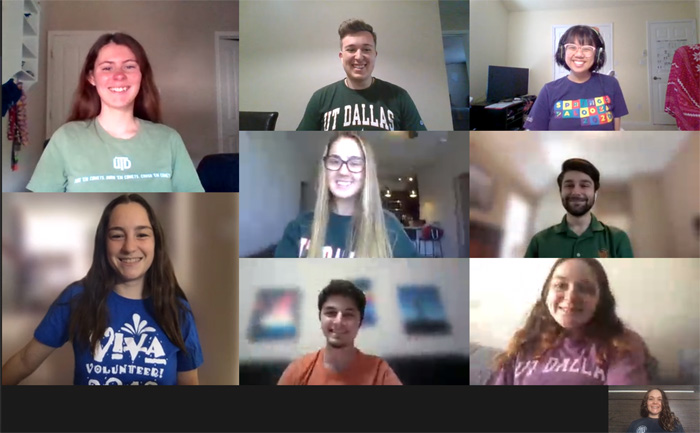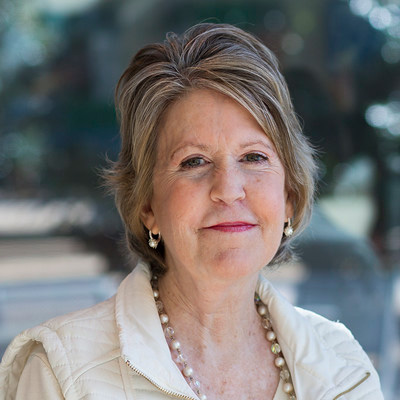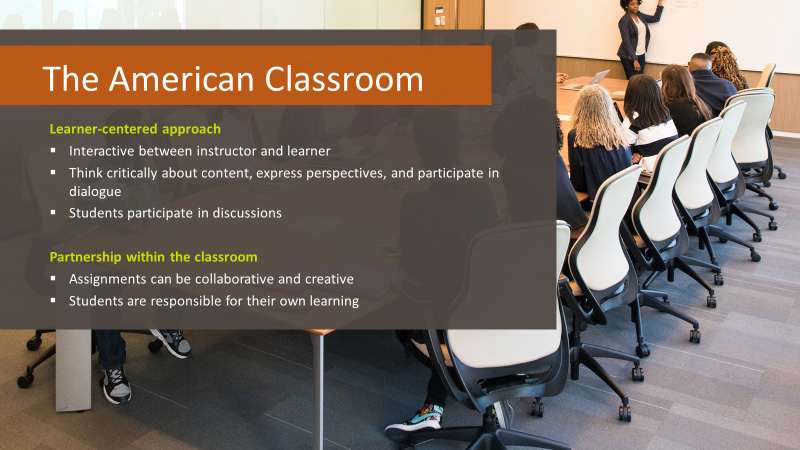University Adapts to Needs of New Comets with Virtual Orientations
By: Robin Russell | June 10, 2020

Student orientation at The University of Texas at Dallas is typically a time for students to familiarize themselves with the campus, meet other students and make new friends, complete course registration, and learn about the University’s services and resources.
With on-campus activities still suspended due to COVID-19, UT Dallas is helping new students become acclimated to University life — even at a distance — through its first virtual orientations.
Staff have transitioned all orientations for new freshmen and transfer students as well as new international students to online formats.
“We want to capture a sense of community for them even though they can’t meet in person,” said Daniel Long, director of student transition programs in the Division of Student Affairs.

Long said his team had a plan even before it began working remotely. Some 2,400 students signed up for freshman orientation, and 800 for transfer orientation this summer.
UT Dallas has had a head start on transitioning to virtual orientations because for several years new students have received pre-orientation modules to complete online. Staff have expanded those modules to include videos and interactive quizzes.
“We’re fortunate to have used e-learning for pre-orientation modules. We’ve had an existing platform for a few years, so we’re ahead of many universities,” Long said.
Instead of in-person presentations that typically happened during summer orientation sessions, campus administrators — including University President Richard C. Benson, Student Affairs Vice President Gene Fitch and Police Chief Larry Zacharias — have provided video messages of welcome.
Staff will help further engage new students through virtual small group meetings using Microsoft Teams. Freshmen began meeting May 28 and continue twice a week through June. Transfer student groups began meeting June 2.
Long said that while student orientation is always a collaborative effort, it is even more so now.
“We could have up to 500 small groups of students. We are using a lot of Student Affairs staff and getting videos from others who participate. We couldn’t have done it without the help of the campus community,” Long said.
Other online orientation offerings include:
- A moderated online Teams Live panel session for families of new students where they can hear about resources available and ask questions via text.
- A virtual tour of campus.
- An online Organization Fair, where students can click links on a campus map and find information on how to become involved.
During a virtual Comet Camp, set for July 27-31, staff and returning student leaders will present UT Dallas traditions, such as the Whoosh. They also will provide tips on relationships, communication and success in college, and allow incoming students to showcase their skills at a virtual talent show.
“One of the things that has been lost with COVID-19 is the sense of community and belonging. We want to help make that happen through small group meetings, interest-based lunches and presentations,” Long said.
International Students
Leticia Zamarripa, director of global engagement for Intercultural Programs, said orientation for new international students will not be mandatory this summer but is still highly recommended.
“Orientation is an opportunity to learn about University requirements and resources, and for student engagement. It helps ease the pain of wandering around campus seeking answers to basic questions,” Zamarripa said.
The orientation sessions for new international students will roll out in three phases. The pre-arrival module launched June 1 and provides an overview for international students, including information about housing, transportation and parking, class registration, University support services, and health and financial resources.

“For international students, there’s the additional need to understand how to transition from a different academic system and function in an American university. We want to provide the topics, resources and activities to help them be successful.”
Leticia Zamarripa, director of global engagement for Intercultural Programs at UT Dallas
On June 15, the orientation modules will offer information on health, wellness and safety; University student conduct policies; academic culture; campus events and organizations; academic support services; and University traditions.
Live Teams or Zoom sessions in July and early August will feature an introduction to Intercultural Programs, how to navigate virtual learning, adjusting to life at UT Dallas, maintaining health and well-being, and Career Center resources. Cultural organizations also will offer sessions on the practical side of academic success from the perspective of international students.
Zamarripa said faculty members are expecting new international students to begin their coursework online from home, due to uncertainty with reduced air travel and difficulties in getting visas because the pandemic has closed many embassies and consulates.

COVID-19 also forced the cancellation last spring of several on-campus events that draw thousands of international students, including iWeek, which had a virtual look this year and typically includes a celebration of international music, d
ance, clothing and food. Intercultural Programs staff maintained live chats with international students through the end of the semester, sometimes having 60 to 80 students at each session.
Staff members are still evaluating the technology they will use for the live stages of orientation later this summer, because not all platforms are available in every country. It’s worth the extra effort, Zamarripa said, because international students especially need the resources orientation provides.
“We really feel orientation is very important for any new student. For international students, there’s the additional need to understand how to transition from a different academic system and function in an American university. We want to provide the topics, resources and activities to help them be successful,” she said.
Media Contact:
Robin Russell, UT Dallas, 972-883-4431, robin.russell@utdallas.edu, or the Office of Media Relations, UT Dallas, (972) 883-2155, newscenter@utdallas.edu.





